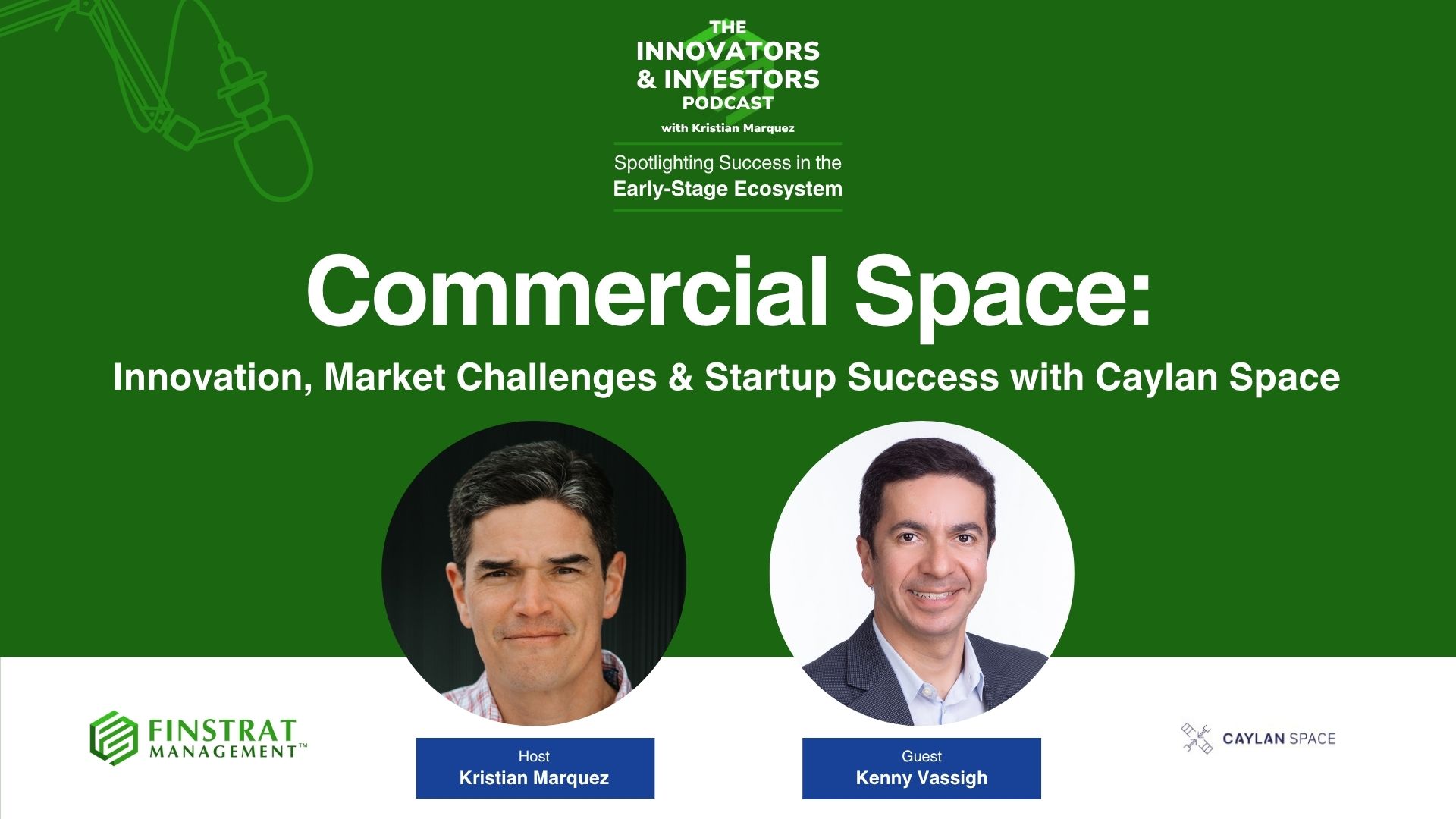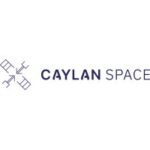Commercial Space: Innovation, Market Challenges & Startup Success with Caylan Space
August 18, 2025 | 39 MIN

Highlights
- Caylan Space offers a digital platform connecting global space tech vendors and customers for commerce and collaboration.
- Earth observation satellites provide critical data for climate science, disaster monitoring, agriculture, and insurance.
- The lunar economy is emerging with NASA’s Artemis program and commercial lunar landers focusing on infrastructure and mining.
- Commercial space benefits from technology transfer and talent flow between NASA and private companies like SpaceX.
- Founders must balance vision with flexibility, develop an MVP, and leverage diverse funding including government grants and venture capital.
- Scaling a space startup requires fast decision-making, multiple roles, strong networks, and marketing efforts.
- Kenny emphasizes continuous learning, interdisciplinary skills, and mentorship as keys to success in space tech careers.
Summary
In this episode of The Innovators and Investors Podcast, host Kristian Marquez interviews Kenny Vassigh, founder of Caylan Space, to discuss the challenges and opportunities within the burgeoning commercial space industry. Drawing on his extensive NASA background, Kenny explains how Caylan Space addresses a critical market gap by providing a digital platform that connects space technology vendors and service providers with global customers, facilitating discovery, comparison, and commerce within the space sector. The platform enables companies to showcase products ranging from satellite components to lunar mission services, supporting the evolving “space-as-a-service” model.
Kenny highlights key space industry use cases such as Earth observation for climate science, disaster monitoring, agriculture, insurance, and intelligence, as well as communication satellites like SpaceX’s Starlink and Amazon’s Kuiper. He also discusses the emerging lunar economy, emphasizing NASA’s Artemis program and commercial efforts to develop lunar infrastructure and mining capabilities, particularly for water ice deposits critical to sustaining future lunar bases and deep space missions.
Reflecting on his career path, Kenny shares how his passion for space guided him from aerospace engineering studies to work on NASA’s Space Shuttle and International Space Station programs, and later to founding Caylan Space. He describes the transition from government to commercial space, technology transfer, and the importance of cross-pollination between agencies like NASA and private companies such as SpaceX. He also advises aspiring space entrepreneurs on the value of flexibility, persistence, and leveraging diverse funding sources including venture capital and government grants, while emphasizing the need for a viable minimum viable product (MVP) and customer traction.
Kenny discusses the challenges and rewards of founding and scaling a space tech startup, underscoring the necessity of wearing multiple hats, learning sales and marketing, and the potential benefits of co-founders or advisory networks. He shares his approach to growing Caylan Space through industry networking and participation in global space conferences, aiming to onboard a wide range of vendors and service providers to the platform.
Finally, Kenny offers advice to young engineers and entrepreneurs: maintain flexibility, embrace continuous learning, develop cross-disciplinary skills including software and AI, and seek mentorship to accelerate growth and leadership development. He credits astronaut Steve Smith as an influential role model and encourages space enthusiasts to connect with Caylan Space for collaboration and support.
Key Insights
- Digital Transformation of Space Commerce: Caylan Space’s platform exemplifies the shift from manual, relationship-driven procurement in space to a digital marketplace, enabling discovery, comparison, and transparency across a global ecosystem. This transformation is vital as the commercial space sector grows exponentially and diversifies beyond traditional government contracts. By lowering barriers for startups and suppliers to reach customers worldwide, the platform accelerates innovation and commercialization.
- Expanding Use Cases Beyond Satellites: While satellites dominate current space activity, the industry’s scope includes a wide array of applications such as hyperspectral imaging for agriculture, synthetic aperture radar (SAR) for intelligence and environmental monitoring, and robust communication networks. This diversification opens new markets and revenue streams and demands versatile technology platforms like Caylan Space to support them.
- Lunar Economy as a New Frontier: The Artemis program and commercial lunar missions mark a paradigm shift from solely government-run exploration to a hybrid model relying on private enterprise for infrastructure, transportation, and resource extraction. Water ice mining on the Moon’s South Pole is identified as a strategic enabler for sustaining lunar bases and fueling deep space missions, highlighting the importance of public-private partnerships in pioneering new space frontiers.
- Technology Transfer and Talent Migration: The success of commercial space hinges on effective tech transfer from government agencies and the movement of skilled personnel between NASA and private companies. Kenny’s career path and the example of SpaceX hiring ex-NASA engineers illustrate how this cross-pollination fuels innovation and startup creation, creating a vibrant ecosystem. This also mitigates concerns about the loss of legacy expertise by infusing fresh talent and ideas.
- Funding Challenges and Strategies for Space Startups: Space hardware ventures face long development cycles (5-8 years) and capital intensiveness, requiring founders to be strategic in securing funding. Kenny advocates for a dual-source approach—leveraging government grants and contracts (e.g., SBIR, DoD funding) to reach technology readiness levels, then using government validation as leverage to attract venture capital. This staged funding approach mitigates risk and builds credibility.
- Founders’ Mindset and Skills: Transitioning from technical roles to entrepreneurship requires founders to embrace flexibility, rapid decision-making, and business acumen. Kenny stresses the importance of defining an MVP that aligns with market needs and building customer relationships early. While solo founding is possible with a strong network and advisory support, co-founders with complementary skills, especially in sales and marketing, can accelerate growth.
- Future-Proofing Careers with Continuous Learning: The rapid evolution of space technology and integration of AI necessitate engineers and entrepreneurs to adopt interdisciplinary skills beyond traditional aerospace disciplines. Software proficiency, data science, and AI are becoming essential. Kenny’s advice to young professionals underlines the importance of lifelong learning and adaptability to navigate a dynamic industry successfully. Mentorship is also critical to shorten learning curves and develop leadership capabilities.
This comprehensive discussion offers practical insights into building spacetech ventures, understanding the evolving space ecosystem, and preparing the next generation of innovators to thrive in a rapidly expanding commercial space economy.
Stay up-to-date with Kenny Vassigh and his work with Caylan Space.
Follow the show on your podcast channel of choice or listen below.




